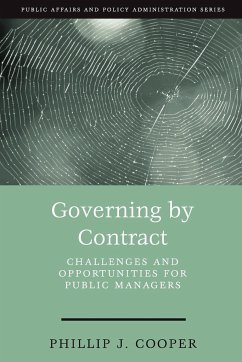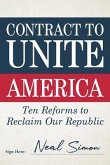Is the public getting a good deal when the government contracts out the delivery of goods and services? Phillip Cooper attempts to get at the heart of this question by exploring what happens when public sector organizations - at the federal, state and local levels - form working relationships with other agencies, communities, non-profit organizations and private firms through contracts. Rather than focus on the ongoing debate over privatization, the book emphasizes the tools managers need to form, operate, terminate or transform these contracts amidst a complex web of intergovernmental relations. Cooper frames the issues of public contract management by showing how managers are caught in between governance by authority and government by contract. By looking at cases ranging from the management of Baltimore schools to the contracting of senior citizen programs in Kansas, he offers practical information to students and practitioners and a theoretical context for their work. At every turn, the author avoids bogging readers down in technical jargon. Instead the book sheds light on a crucial part of any public manager's job with lively case material and no-nonsense guidance for making the most of taxpayer dollars.








